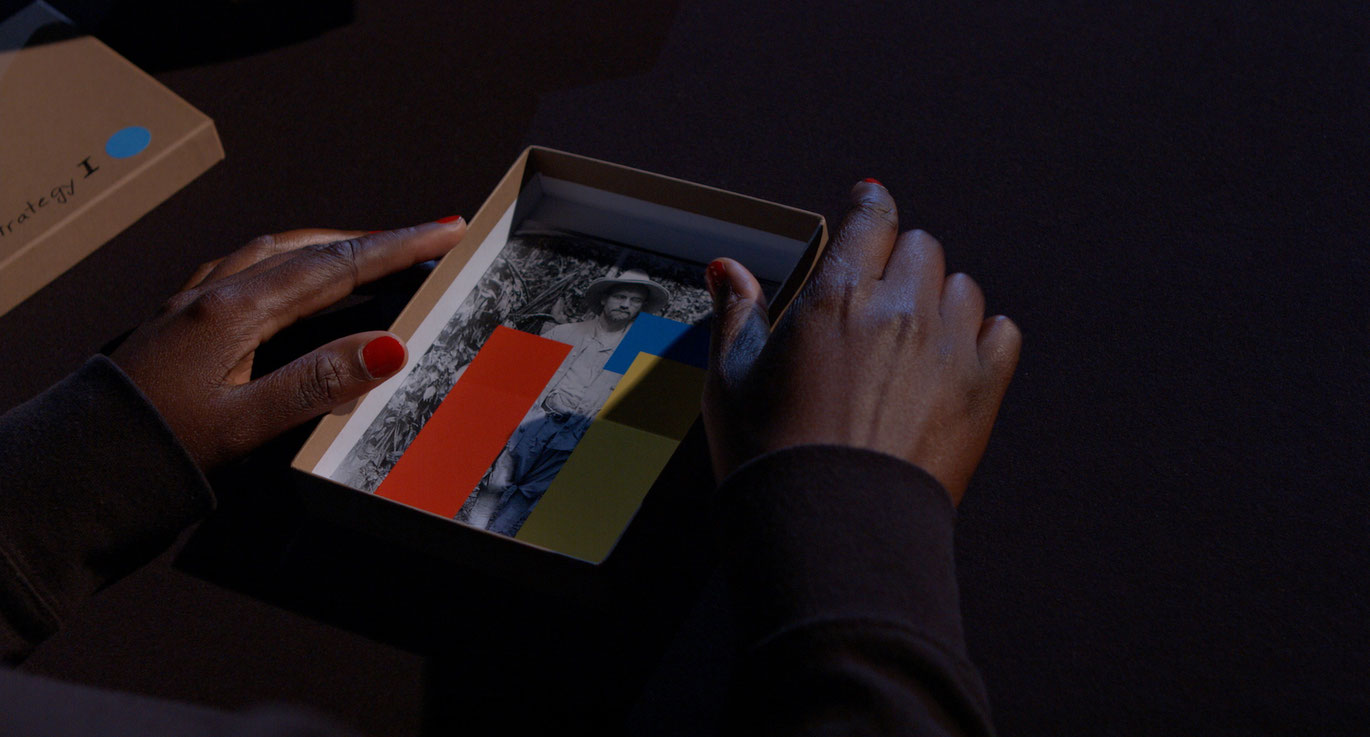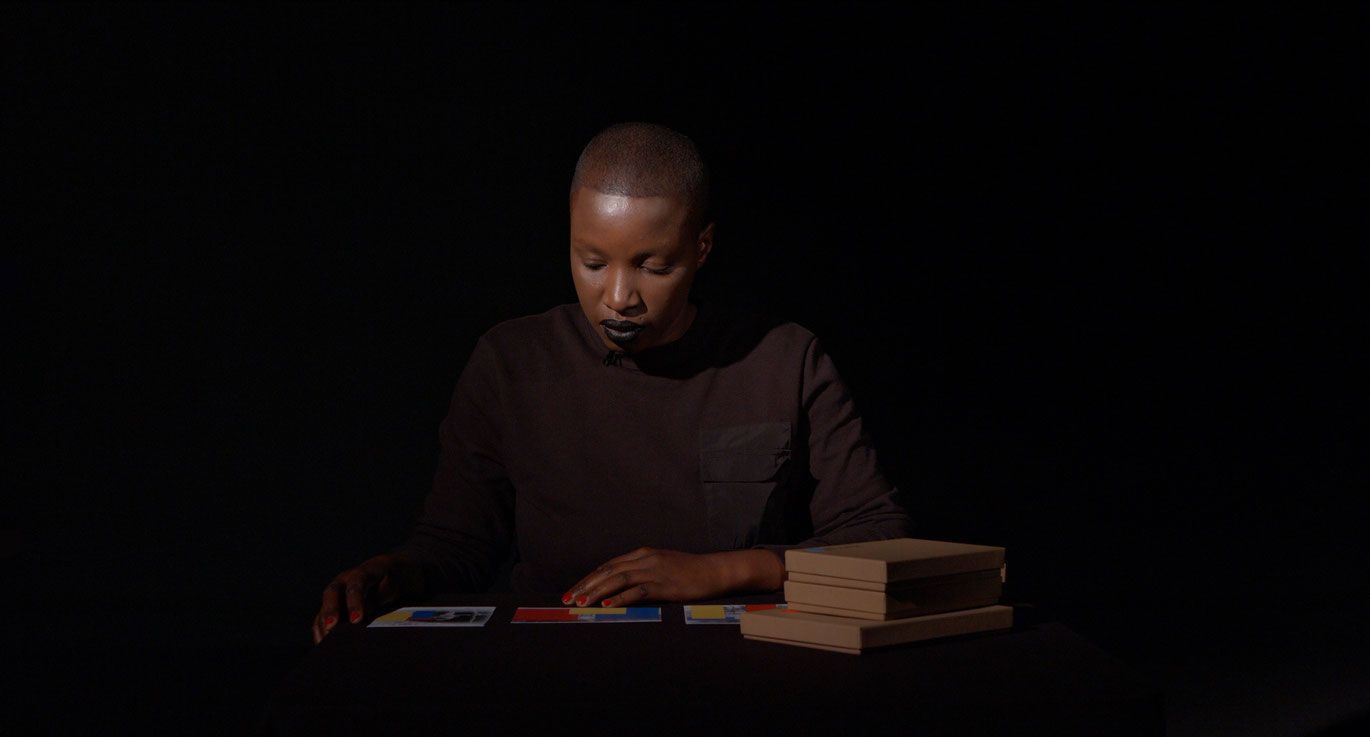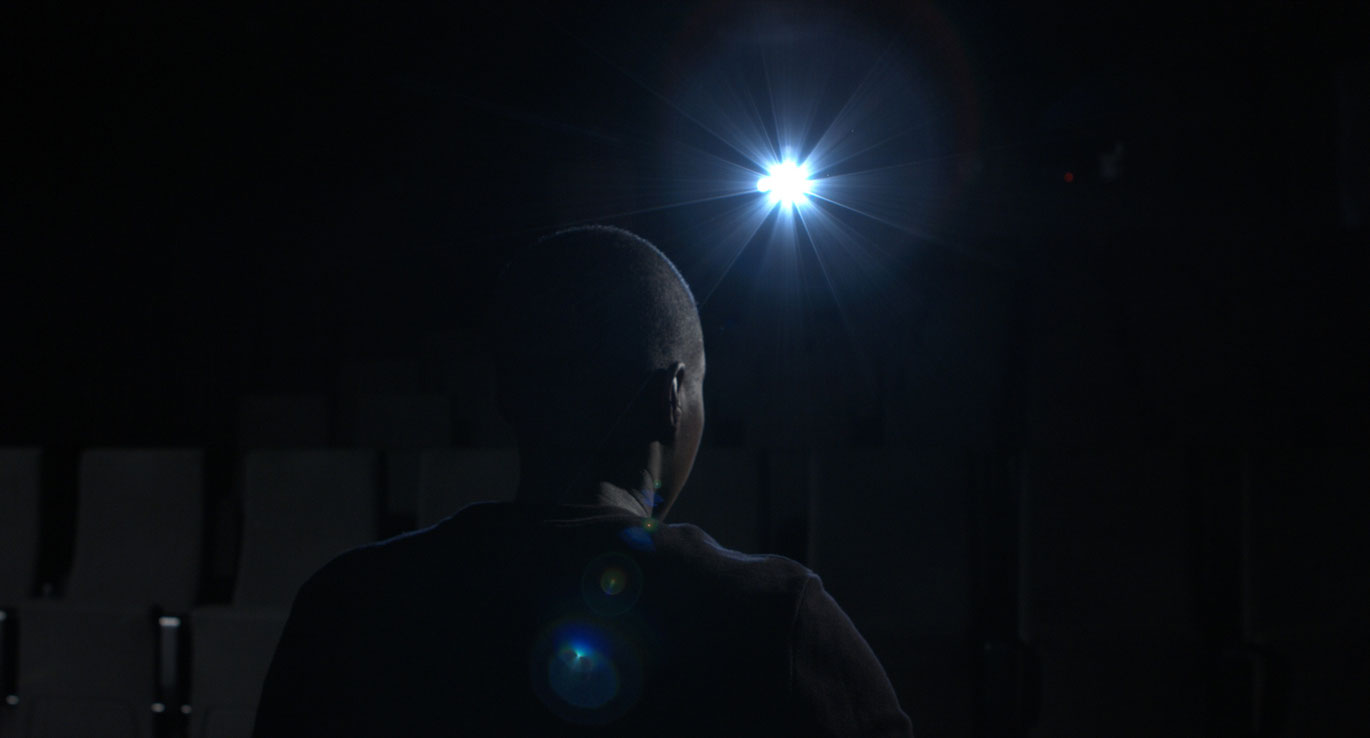Unearthing. In Conversation
The film shows a performance. But the seats in the theatre are still empty when the performer – the artist – enters the frame. She speaks about a colonial flashback, a seemingly important encounter, addressing someone or a group as "you."
We learn that she is haunted by a series of historic photographs taken by or of the Austrian ethnographer Paul Schebesta, in the 1930s, in the Belgian colony of the Congo. The film´s "you" does not address the colonizer, but the colonized, especially those with whom Schebesta chose to be depicted on a photo. The "you", at the same time, seems to address me, the viewer, who now also becomes part of the encounter. But who exactly is the "you" addressed by this film, am I the film´s preferred audience? The position of the viewer becomes unsettled: a white viewer, a citizen of a country with a colonial legacy, can no longer assume to be the ideal audience, unmarked and universal.
While the performer starts to unpack boxes with images, the viewer catches a view of the historic photographs from over her shoulder. The performer-artist has already taken responsibility for what is left in the archive, and transformed it, a process that scholar Christina Sharpe calls "black redaction and black annotation," a way of seeing Blackness otherwise, and "toward seeing something in excess of what is caught in the frame." "How does one oppose by looking?" asks the performer, intensely staring at me, the viewer.
In a poetic and sharp language the performer-artist describes and shows ways of taking care of the photographs, but there is never a "right" way. Covering a depicted person might preserve this body from the gaze but it also takes part, by rendering the body opaque, in the process of erasure. The encounter asks for a double bind which the film performs: Being fierce in opposing, but still allowing for insecurity, curiousness, and vulnerability, is the requirement for resistance under the condition of the colonial. (Renate Lorenz)
On an empty movie hall stage, Belinda Kazeem-Kamiński uses ethnographic photos to undertake a performative search for presentation strategies capable of resisting the colonial regime of the gaze: self-empowerment via visibility and the opportunity to gaze back — "Until the lion has his or her own storyteller, the hunter will always have the best part of the story." (Diagonale 2018, Michelle Koch)
Unearthing. In Conversation
2017
Austria
13 min



